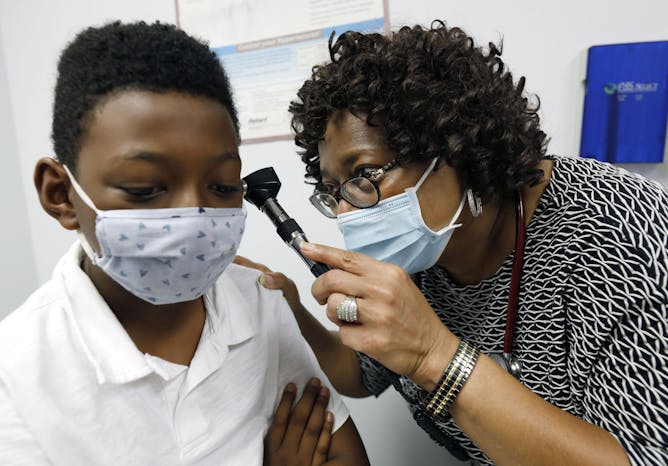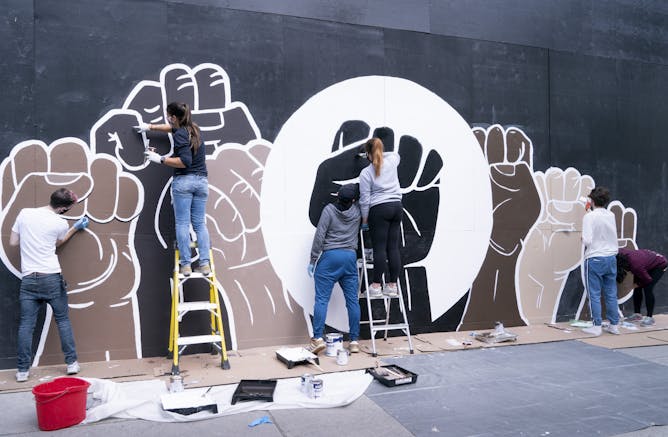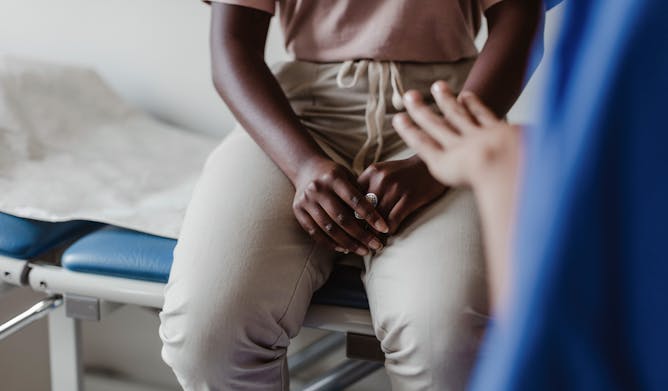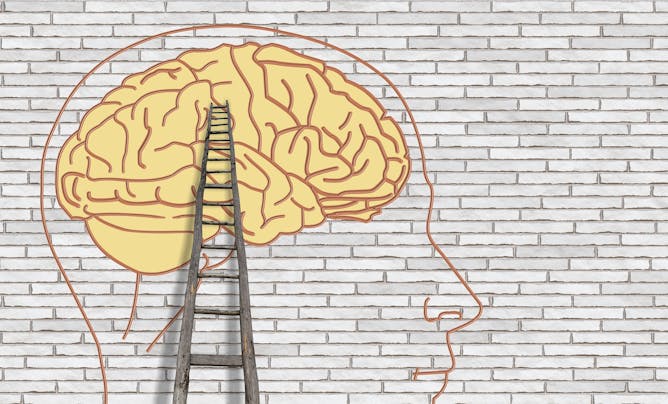|
When COVID-19 first appeared in North America, some called it the great equalizer. But the facts quickly revealed a grim reality: COVID-19 disproportionately impacts Black, Indigenous, poor and racialized communities.
In the latest episode of our podcast Don’t Call Me Resilient, I speak with Roberta Timothy, a health and human rights researcher and a professor at the Dalla Lana School of Public Health at the University of Toronto. As a therapist and activist, Roberta is intimately connected to her community. She says there are many reasons for health disparities. Some of these are historical, some are social.
In this episode, she talks about her new international health project, Black Health Matters, and reflects on the year and explains why racial justice is a public health issue.
Every week, we highlight articles that drill down into the topics we discuss in the episode.
Also today:
Regards,
|

In this episode, Roberta Timothy talks about her new international health project, Black Health Matters, and explains why racial justice is a public health issue. In this photo, Dr. Janice Bacon, a primary care physician with Central Mississippi Health Services, gives Jeremiah Young, 11, a physical exam.
(AP Photo/Rogelio V. Solis)
Vinita Srivastava, The Conversation; Anowa Quarcoo, The Conversation; Ibrahim Daair, The Conversation
When COVID-19 first appeared, some called it the great equalizer. But the facts quickly revealed a grim reality: COVID-19 disproportionately impacts racialized communities.
|

In this episode, Roberta Timothy explains why racial justice is a public health issue and talks about why she believes historical scientific racism needs to be addressed. Dr. David Tom Cooke, of UC Davis Health, participated in Pfizer’s clinical trial as part of an effort to reduce skepticism about the COVID-19 vaccine.
(AP Photo/Rich Pedroncelli)
Vinita Srivastava, The Conversation; Ibrahim Daair, The Conversation
Transcript of Don't Call Me Resilient, Episode 5: Black health matters
|

This mural in-progress outside the Apple store in Montréal is a sign of antiracist allyship: will this work help society start to address the long-term health impacts of racism?
THE CANADIAN PRESS/Paul Chiasson
Roberta K. Timothy, University of Toronto
While many institutions pledged their support for anti-racism work this summer, a health researcher says these ideas need to go further to address the long-term health impacts of internalized racism.
|

Black patients can be wary of the medical establishment.
Maskot via Getty Images
Esther Jones, Clark University
Though COVID-19 has killed Black Americans at nearly twice the rate as white Americans, Black people are the least likely racial group to say they're eager to get the vaccine.
|

Senate gender parity suggests women are beginning to break through the glass ceiling in Canadian politics. Canada’s Senate chamber is seen in this photo.
Flickr
Elizabeth McCallion, Queen's University, Ontario
In December 2020, the Senate became gender-equal, offering up the promise that women's interests will be represented in the upper chamber.
|

Wearable devices can help track the spread of COVID-19 in places where smartphone use isn’t possible.
(Shutterstock)
Joe Masoodi, Ryerson University
The government of Ontario's announcement of funding of a wearable contact tracking device for workplaces raises concerns about privacy and surveillance.
|

Le projet de loi C-7 vise à étendre l’aide médicale à mourir (AMM) aux malades souffrant seulement d’une maladie mentale.
(Pixabay)
Karandeep Sonu Gaind, University of Toronto
À la base des demandes d’aide médicale à mourir, il y a un problème de santé incurable. Mais il n’est pas possible de prédire qu’une maladie mentale ne s’améliorera pas.
|

Les caméras portatives n'ont pas réussi à rendre les forces de l’ordre imputables parce que la diffusion des images est souvent refusée ou retardée.
Shutterstock
Étienne Charbonneau, École nationale d'administration publique (ENAP); Dan Bromberg, University of New Hampshire
Les recherches montrent que de nombreux partisans des caméras portatives minimisent la complexité de ces programmes et en exagèrent les avantages potentiels.
|
Politics
|
-
Jeffrey Fields, USC Dornsife College of Letters, Arts and Sciences
Saudi's crown prince approved the killing and dismemberment of a Washington Post columnist in 2018, the Biden administration says. So how can the US still see the Saudis as good partners?
|
|
Environment + Energy
|
-
Noir Primadona Purba, Universitas Padjadjaran; Kirana Agustina, World Resources Institute
The countries of the ASEAN region have important roles to play in tackling the global problem of marine plastic waste.
|
|
|
|